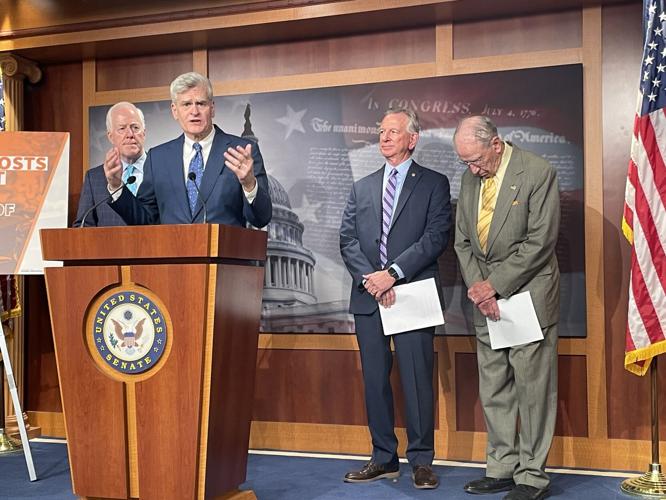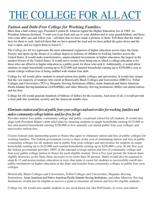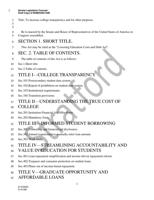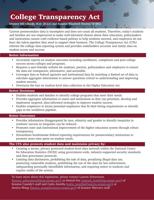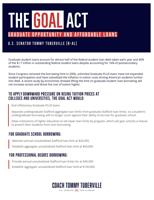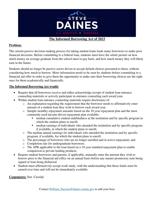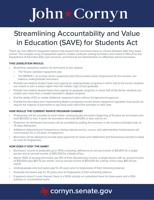WASHINGTON – Senate Democrats and Republicans on Wednesday introduced competing legislative packages aimed at reducing the cost of college for incoming students.
“Student loan debt is the anchor on people’s feet and that is keeping them from upward mobility; that is the reason that kids are having to move back to their parents’ basement,” said U.S. Sen. Bill Cassidy, R-Baton Rouge, who, along with other GOP senators, rolled out bills that would simplify the borrowing process and require colleges to provide debt counseling to students, among other moves. Cassidy is the lead Republican on the Senate Health, Education, Labor, and Pensions Committee.
The GOP cadre has pointed to studies that show colleges routinely present cost and financial aid information in different ways, which it makes difficult for students to compare the costs of institutions and to accurately estimate other costs of attendance, such as books, housing and meals. They argue that regulations and some programs make federally backed loans for higher education more attractive than those offered by private lenders.
Those and other challenges have contributed to college costs that have ballooned 124% over the past three decades, Cassidy said.
At the same time, the HELP committee’s chair, Sen. Bernie Sanders of Vermont - who is unaffiliated with a political party - released legislation that would guarantee tuition-free community college for all students. His bills would also allow students to attend four-year colleges without student loan debt if they hail from single-parent households that earn up to $125,000 a year or from married-parent households that earn up to $250,000 a year.
“In the wealthiest country in the history of the world, a higher education should be a right for all, not a privilege for the few,” Sanders said. “In the 21st century, a free public education system that goes from kindergarten through high school is no longer good enough. The time is long overdue to make public colleges and universities tuition-free and debt-free for working families.”
The bills come as the U.S. Supreme Court is expected to rule any day now on the fate of President Joe Biden's student loan forgiveness program, after legal challenges over the program's constitutionality last year forced the court's hand. Both chambers of Congress have also sought to block the program's implementation, though Biden vetoed a bill that would do so last week. Congress does not have the two-thirds majority vote necessary to override that veto.
Republicans have long said that allowing some borrowers to skip repaying loans isn't fair to those who have already done so or to those who didn't go to college but needed to borrow money for items, such as pickup trucks, needed to go to work. They also say that the program would cost the country up to $400 billion over the next 30 years.
The Biden inititaive would forgive up to $20,000 in student loans for individual borrowers who earn less than $125,000 per year or for married-couple borrowers who earn less than $250,000 per year.
“As millions of borrowers wait in limbo to see if the Supreme Court will allow President Biden’s student debt cancellation plan to lift millions out of debt, Congress must work to ensure that working families never have to take out these crushing loans in the first place,” said U.S. Rep. Pramila Jayapal, D-Washington, who co-sponsored the Sanders’ bill along with eight Democratic senators.
Sanders’ College for All Act would also:
- Double the maximum Pell Grant award: $7,395 to $14,790 for the 2024-2025 school year for students enrolled at public and private non-profit colleges;
- Establish a $10 billion grant program for states participating in the federal-state partnership to scale evidence-based practices and strategies;
- Triple funding from $1.191 billion to $3 billion for the federal TRIO programs that assist low-income individuals, first-generation college students, and the disabled.
- Double mandatory funding for Historically Black Colleges and Universities, Tribal Colleges and Universities, and other Minority-Serving institutions.
College for All Act
Sanders would pay for his College for All Act with the proceeds from a tax of 0.5% on stock trades, a 0.1% fee on bonds, and a 0.005% fee on derivatives and other financial instruments.
The legislative package proposed by Cassidy, Sens John Cronyn III, R-Texas, Chuck Grassley, R-Iowa; Steve Daines, R-Montana; and Tommy Tuberville, R-Alabama would require lenders tp provide more information to college and graduate students about academic programs, schools, job outcomes, and loan repayments. The bills would also simplify the borrowing process to keep students from unintentionally taking out more loans than they can afford; and require the government to offer less confusing loan repayment options.
The bills include:
- Cassidy’s College Transparency Act – Revamps the college data reporting system to ensure students and families have better information on student success and outcomes as they consider higher education institutions.
- Grassley’s Understanding the True Cost of College Act – Requires colleges and universities to use a uniform financial aid letter with clear indications of the types and breakdown of aid included (scholarships, loans, work study, etc.) so students and their families can understand and compare their financial aid options.
- Daines’ Informed Student Borrower Act – Supports students in meeting their academic needs and budget when deciding to take out loans by requiring colleges to offer clear information about the duration of their loan, their expected monthly payment, and how much money they will likely make in the future after attending their school and program of choice. Colleges would provide this information to students annually.
- Cornyn’s Streamlining Accountability and Value in Education for Students Act – Limits repayment options for borrowers from nine options to two options, so families can better understand which repayment plan best fits their needs. It would limit access to loans to the pay students can expect to receive based on the academic programs in which they study.
- Tuberville’s Graduate Opportunity and Affordable Loans Act – Ends inflationary Graduate PLUS loans and puts downward pressure on rising tuition costs by limiting graduate school borrowing. Additionally, it allows institutions to set lower loan limits to keep students from overborrowing.
Lowering Education Costs and Debt Act
College Transparency Act
Student debt GOAL Act One Pager_Tuberville
Student debt Informed Borrowing One Pager
SAVE For Students
“The system has been gamed," Cronyn said, "...to take advantage of the fact, as others have pointed out, that there are virtually unlimited amounts of money available to borrow to go to colleges and universities … as debts students incurs go up, the cost of tuition goes up.”

